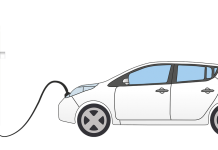- Researchers say current heart health calculation tools may be underestimating the risk of heart attack and stroke for people of South Asian descent.
- They say these heart “calculators” should be adjusted to account for this higher risk.
- Researchers also note that more studies should be done on why heart health issues are more common in people of South Asian ancestry.
Common heart health calculation tools may be dangerously deficient in accurately assessing risk among people of South Asian ancestry, a new study suggests.
Researchers compared data from 8,124 people of South Asian descent with data from 449,349 people of European ancestry.
During an 11-year period, researchers found that nearly 7 percent of study participants of South Asian ancestry had a heart attack, stroke, or needed another cardiovascular procedure versus 4 percent of participants of European ancestry.
Participants in the South Asian-descended cohort were more likely to have had cardiovascular disease risk factors, such as type 2 diabetes, excess belly fat, and high blood pressure, than participants in the European-descended cohort.
However, even controlling for these factors, study participants of South Asian descent still had a 45 percent higher risk of heart problems, indicating a level of additional absolute risk at the genetic level.
But that increase in risk is currently not reflected in heart risk “calculators” used in Europe and the United States.
“This is a very interesting study. Typical heart risk calculators use variables like lipids, age, sex, hypertension, diabetes, body mass index score, etc., to calculate someone’s risk for cardiovascular disease,” Dr. Jennifer Haden Haythe, a critical care cardiologist, associate professor of medicine, and co-director of the Columbia Women’s Heart Center in New York City, told Healthline.
“This study is highlighting that certain genetic factors like ancestry are not factored into these calculators but in fact are strong predictors of risk,” she said.
The risk of higher risk
Nearly 2 billion people worldwide are of South Asian descent, so the inaccuracies built into current health tools could have serious repercussions for accurate plans of care and timely interventions into cardiovascular problems.
“We were surprised by the magnitude of the increased risk. Even within contemporary clinical practice, it was more than double, and how much of it remains unexplained by traditional clinical or lifestyle risk factors,” Dr. Amit Khera, a senior study author, cardiologist at Corrigan Minehan Heart Center in Boston, and research lead at Massachusetts General Hospital’s Center for Genomic Medicine, said in a press release.
This study highlights the deep cost medical bias can have, whether implicit bias among medical staff or the biases built into the tools used to help develop patient care.
But how did current tools miss these increased risks during development?
“Likely because no South Asians were included in developing the U.S. tool,” Khera said. “So we may be missing opportunities to prevent heart attacks and strokes in this group. Intensive control of risk factors like high cholesterol and type 2 diabetes are even more important in this population.”
Dr. Aniruddh Patel, a lead study author and a cardiology fellow at Massachusetts General Hospital, concurred.
“We need to dig deeper to better understand why South Asians are having heart attacks and strokes at higher rates even after accounting for these risk factors,” he said in a news release.
However, public databases in the United States only group people together by race rather than ancestry, making more qualified assessments of a person’s risk difficult, Patel noted.
Therefore, medical professionals may need more information before they can start refining our tools, as the concept of one’s “descent” at a genetic level is far from straightforward.
“Studies like this one may lead to changes in current risk calculators as we know them,” Haythe said. “However, many individuals have complex ancestral backgrounds, and more research will be needed to further understand how to capture risk in simplified scoring systems.”
















